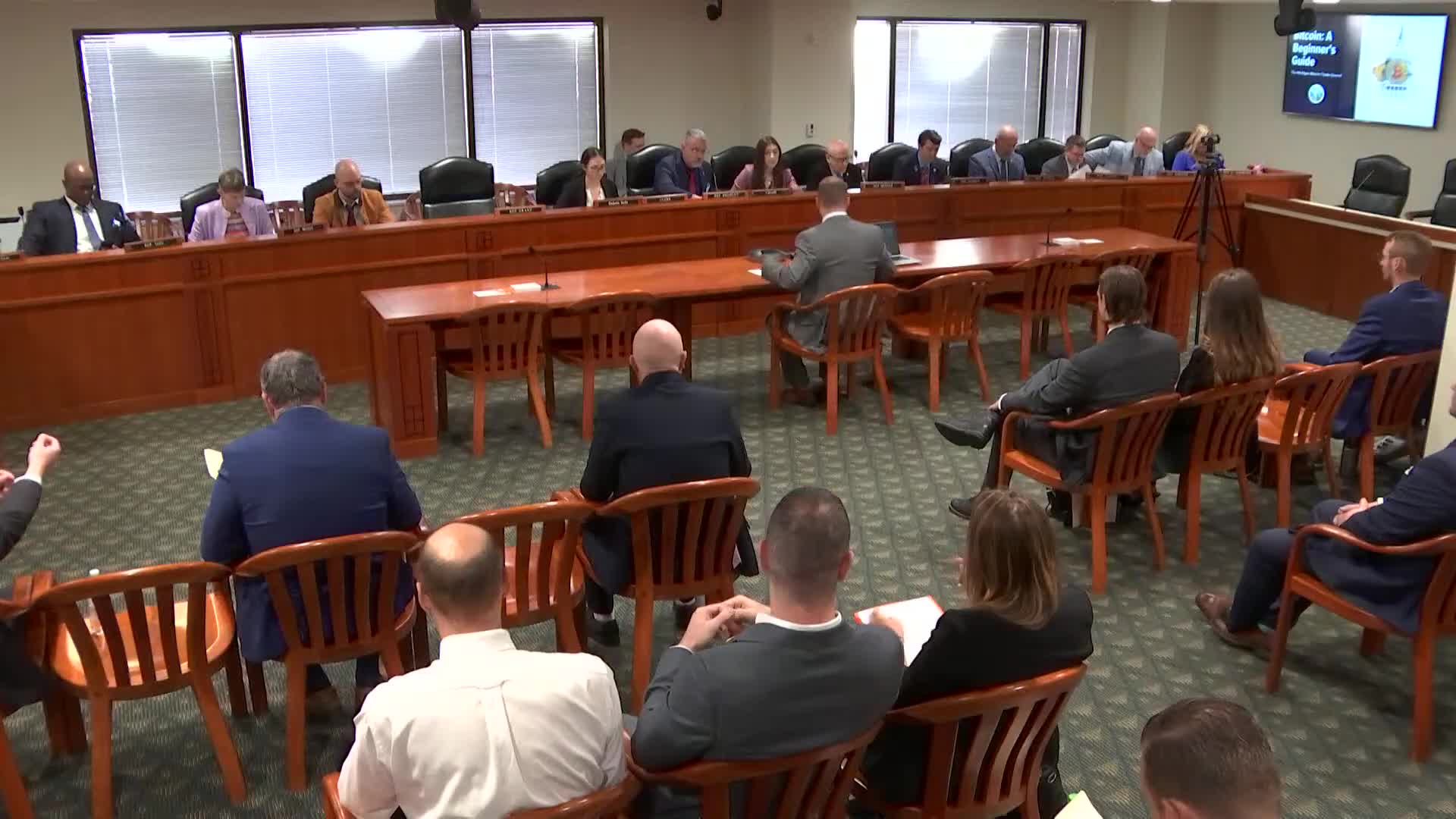Michigan committee hears multi-bill cryptocurrency package, including pension investment guardrails and orphan-well mining proposal
Get AI-powered insights, summaries, and transcripts
Subscribe
Summary
The Michigan House Committee on Economic Competitiveness heard testimony on a package of bills that would allow limited pension investment in large, ETF‑structured cryptocurrencies, create a digital‑asset bill of rights to protect individual custody rights, and authorize pilot programs to use abandoned oil and gas wells for Bitcoin mining.
The Michigan House Committee on Economic Competitiveness heard more than an hour of testimony on a package of cryptocurrency bills that would protect user custody, allow limited state pension exposure to large, exchange‑traded crypto assets and authorize pilot programs to repurpose abandoned oil and gas wells for Bitcoin mining.
Representative Posthumous, appearing as a lead sponsor for House Bill 45 11, told the committee he believes “in the near future … cryptocurrency and digital assets will be the foundation of the financial world,” and described the bill as a mechanism to protect individuals who hold digital assets from being forced into licensing requirements or other government-imposed limits.
The package includes House Bill 45 10, offered by Representative Schuette, which would amend the Public Employee Retirement System Investment Act to allow the state treasurer—in the treasurer’s role as an investment fiduciary—to invest in digital assets only under defined conditions. Schuette said those conditions include: (1) the asset must have an average market capitalization of at least $250,000,000,000 over the prior calendar year; (2) investments must be made via exchange‑traded funds issued by a registered investment company; and (3) no more than 5% of a given pension fund may be allocated to digital assets. Schuette and supporters described those limits as a way to seek upside returns while retaining fiduciary guardrails.
Representative McFaul testified in support of House Bills 45 12 and 45 13. HB4512 would allow Bitcoin miners to use abandoned oil and natural gas wells managed by the Michigan Department of Environment, Great Lakes, and Energy (EGLE) as an onsite fuel source for power generation, and HB4513 would provide a tax exemption for Bitcoin mined under the program. McFaul said operators that use the wells would be required to cap them later, framing the bills as both an economic incentive and an environmental-remediation mechanism. He told the committee a substitute bill incorporating EGLE’s input was in development.
Proponents from industry and advocacy groups delivered technical and policy testimony. Amber Harris of the Michigan Bitcoin Trade Council described Bitcoin’s technical features—fixed supply (21,000,000 coins), a public ledger managed by nodes and miners, and periodic halving—and urged the committee to adopt protections and pension-fund discussions. Thomas McCarthy of Satoshi Action Fund urged the committee to forward HB4511, saying the bill would “prohibit the state or any political subdivision from banning or impairing the ability to hold digital assets,” protect node operation and transferring of digital assets, and bar state support for central bank digital currencies (CBDCs).
Committee members raised questions about auditing, fiduciary duty, volatility and energy impacts. One lawmaker asked how investments would be audited; supporters pointed to ETFs and regulated custodians as mechanisms that provide market oversight. On the pension proposal, supporters offered numerical examples of past returns when arguing for limited exposure (for example testimony asserting that an $8 million hypothetical early investment in a Bitcoin ETF could have grown materially), but no formal investment decision or vote occurred at the hearing.
Environmental and conservation groups registered opposition to the mining-related bills. The clerk read in written comments from the Sierra Club, the Michigan Environmental Council and other climate groups opposing HB4512–HB4513. Committee members pressed sponsors for details on how abandoned-well energy would be captured and whether the onsite generation would be grid‑connected; sponsors said the intent was onsite use and later capping of wells when fuel was exhausted.
No committee votes were taken on the cryptocurrency bills at the hearing. Committee members and sponsors said additional hearings and follow-up with stakeholders (including EGLE and the state treasurer’s office) were expected before any legislation would advance.
The committee also received numerous written registrations in support of the bills from industry groups and Bitcoin-focused organizations, and written opposition from environmental organizations.
